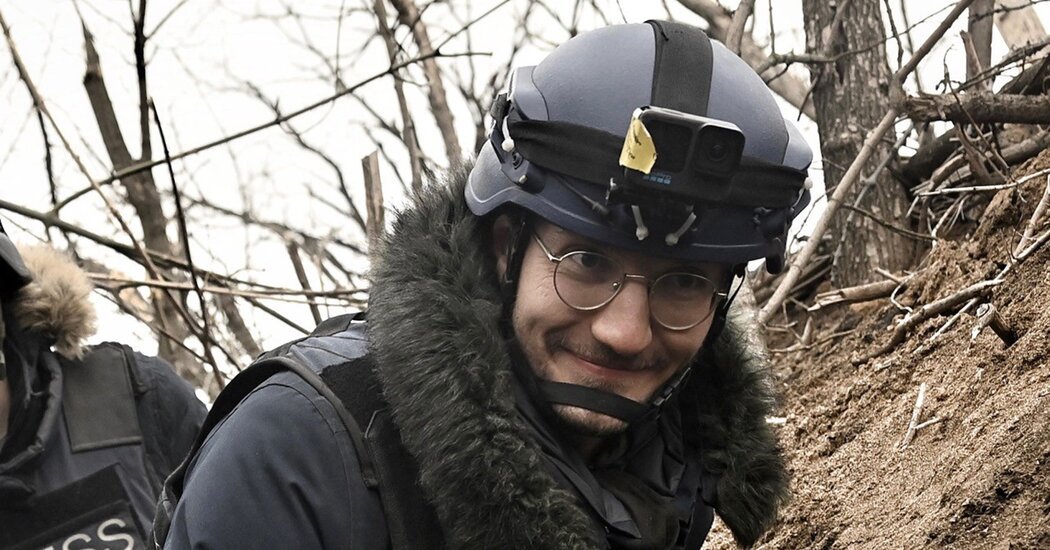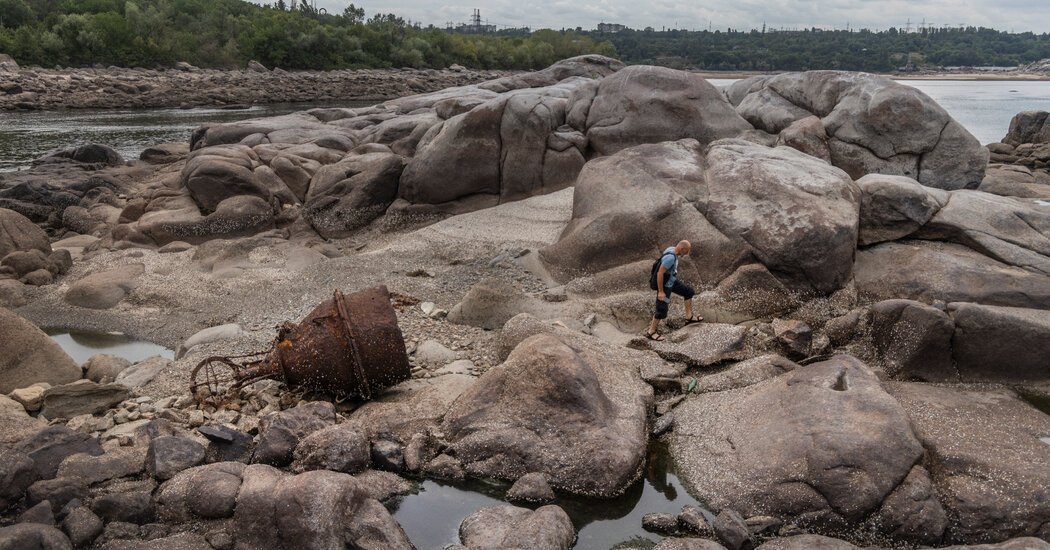President Recep Tayyip Erdogan of Turkey, invoking themes of Turkish nationalism and counterterrorism, has been the main obstacle toward Sweden joining the NATO alliance after Russia’s invasion of Ukraine.
His fierce public opposition played well in his re-election campaign. So did his role as a power broker, vital to NATO but also as an intermediary, able to maintain good relations with both Russia and Ukraine.
Now safely re-elected on Sunday as president of Turkey, Mr. Erdogan is expected to project the same image, by tightening his grip on power at home while balancing between his allies inside NATO and his economic dependency on Russia.
But with renewed nationalist credentials, he could feel freer to mend ties with the United States, analysts suggest, and could approve the membership of Sweden into NATO, as he already did with Finland, perhaps in time for the alliance’s yearly summit in July.
To underline U.S. support for both Sweden and Finland in NATO, Secretary of State Antony J. Blinken will visit both countries this week as part of a trip to attend an informal alliance meeting of foreign ministers in Norway.
Acquiescing would have benefits for Mr. Erdogan. Sweden’s entry into NATO may unlock the sale of American F-16s and kits to upgrade Turkey’s older models. Those sales have been blocked in Congress, where many legislators are angry about Mr. Erdogan’s ties to Russia, his purchase of the Russian S-400 antiaircraft system and his crackdown on dissent.
“His victory is meaningful for Turkish society and politics, but less disruptive for foreign policy,” said Ian Lesser, a Turkey expert who directs the Brussels office of the German Marshall Fund. “I don’t see a troubled relationship getting worse.”
Turkey is a vital member of NATO, as a major military contributor that controls the Black Sea, a territory critical in Russia’s war in Ukraine. But Mr. Erdogan, increasingly unpredictable and authoritarian, relies on Russia for energy, trade and injections of hard currency and has refused to apply Western sanctions on Moscow or on Vladimir V. Putin, Russia’s president.
His military occupation of northern Syria — to keep down Kurdish forces he associates with a guerrilla group that has fought a decades-long insurgency in Turkey — also troubles allies. While Turkish troops have protected some Syrian dissident enclaves, Mr. Erdogan has simultaneously engaged in a rapprochement with Syria’s president, Bashar al-Assad. Mr. Erdogan wants his help to restrain the Kurds and take back some of the four million Syrian refugees that Turkey has been hosting in the name of Islamic solidarity.
Mr. Erdogan may disappoint those who hope for a more emollient, more Western-leaning Turkey, however, and Turkey is not the only ally becoming more authoritarian. Hungary and Serbia are doing the same, and Poland, though fiercely anti-Russia, is, like Turkey, undermining the rule of law, judicial independence and press freedom.
Mr. Erdogan’s re-election “will open a larger debate about how we engage with allies and strategic partners with whom we have declining affinity, and Turkey won’t be the only one,” Mr. Lesser said. Europe will have to find new ways of appealing to the more democratic opposition in these countries and engaging better with society, he said.
That drift away from democratic values and the rule of law will mean little progress in long-frozen talks on accession to the European Union. For Brussels, said Nathalie Tocci, director of Italy’s Institute of International Affairs, it is a kind of relief — a win by the democratic opposition would have meant that Brussels would have had to take Turkey’s accession negotiations more seriously, including a revision of the agreements on customs and visas.
“The European Union will be able to talk the talk of values, slamming Turkey’s authoritarianism — over which it has no influence — while cynically walking the walk of a purely transactional relationship with an unabashedly transactional leader,” she wrote for Politico, expanding her thoughts in an interview.
While regarding Mr. Erdogan as an autocrat, she said, Europe “was rather successful in negotiating nasty deals with him on migration,” paying Turkey to house refugees and asylum seekers and prevent them from coming to Europe.
His domestic needs are likely to influence his geopolitical moves. Inflation remains stubbornly high in Turkey, and the surge in government spending before the election has only added to the pressure.
Emre Peker, who studies Turkey for the Eurasia Group, a risk-analysis firm, said he thinks Mr. Erdogan, after his biggest electoral challenge, will tighten up at home, aiming to overturn opposition victories in big cities in elections next year.
Economic difficulties mean that Mr. Erdogan will be more careful abroad, Mr. Peker said. “He can’t afford the wheels to come off” while seeking investment and aid.
“Turkey’s relations with the U.S. and the E.U. will remain transactional and tense,” Mr. Peker said, but Mr. Erdogan will want to avoid Western sanctions over Russia, restraining Turkish banks and companies from doing major trade deals with Moscow. “Ankara is likely to ratify Sweden’s NATO membership this year, in return seeking to finalize F-16 purchases from the U.S.”
Mark Esper, a former U.S. secretary of defense, said on a visit to Finland that Turkey’s ratification of Sweden for NATO was key to better relations. If Mr. Erdogan does not announce his approval soon, and membership lingers past the NATO summit, “We lose energy,” Mr. Esper said, “and I’m afraid it gets dragged on from there.”
After decades of military nonalignment, both Sweden and Finland applied to join NATO nearly a year ago, with great fanfare from the Biden administration. Almost from the outset, Mr. Erdogan was the sticking point in the process.
The Turkish president claimed the Nordic countries were soft on terrorism, especially toward Kurdish exiles and refugees affiliated with the Kurdish Workers’ Party, considered a terrorist group by the United States and the European Union. “These countries have almost become guesthouses for terrorist organizations,” Mr. Erdogan has said. “It is not possible for us to be in favor.”
Finland got Mr. Erdogan’s approval in March to join NATO by making relatively minor policy changes, including tightening its antiterrorism laws and lifting an arms embargo on Turkey. He has continued to hold out on Sweden, although he can justifiably claim credit for a tough new antiterrorism law that will go into effect in the country on June 1.
Evelyn Farkas, a former Pentagon official who is now executive director of the McCain Institute, said: “If Sweden is not admitted as soon as possible, that will dilute our strong response to Vladimir Putin, our strong response to Russia’s aggression, and Putin will take it as some kind of a victory.”
Johanna Lemola contributed reporting from Helsinki, Finland.





